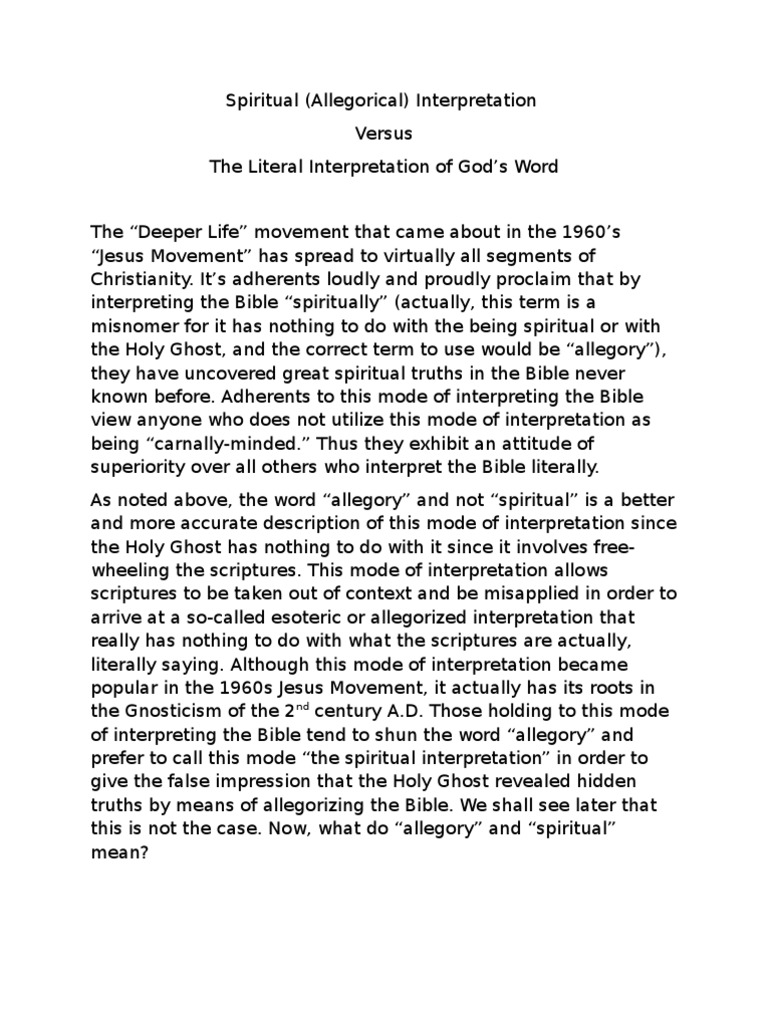The Baha’i Faith, with its intrinsic emphasis on the unity of all beings and the simultaneous advancement of science and religion, offers a profound invitation to transcend the confines of literal interpretation. It extols the virtues of using spiritual senses as a means to unlock deeper meanings embedded within religious texts and teachings. This holistic approach encourages adherents to seek truths that lie beyond the surface, prompting a transformative shift in perspective that can unveil the profound interconnectedness of human experience.
At its core, Baha’i teachings advocate for a comprehensive understanding of spiritual realities. Using spiritual senses involves cultivating intuition, inner perception, and heightened awareness. These senses serve as a lens through which individuals may decipher the significance of religious narratives, thus transforming mere observance into an enlightened experience. The teachings encourage a methodology centered around reflection and contemplation—an imperative practice that nurtures the soul by revealing layers of meaning obscured by literal interpretation.
Moreover, the teachings elucidate the distinction between the ‘letter’ and the ‘spirit’ of divine messages. The letter may convey fundamental truths; however, it is often the spirit that beckons the seeker to delve deeper. This principle is particularly pronounced in the exploration of sacred texts. For instance, the interpretation of Baha’u’llah’s writings invites one to explore not only the explicit messages but also the esoteric implications that resonate with contemporary issues. Such an approach inspires a richer engagement with the text and promotes a more profound understanding of universal themes.
In challenging the propensity for literalism, Baha’i teachings propose an alternative pathway. The reliance on spiritual senses prompts followers to question the conventional narratives and to reconsider preconceived notions. This paradigm shift is akin to the metamorphosis of a butterfly—an awakening that allows for the exploration of higher truths and ethical standards. When individuals engage with their innate spiritual capacities, they illuminate their understanding, leading them to profound realizations and insights.
Furthermore, the processes of interpretation rely significantly on the dialectic between experience and understanding. In the Baha’i context, community discourse and consultation become instrumental in refining perspectives. When individuals share insights drawn from their spiritual senses, they contribute to an expansive dialogue that elevates collective understanding. This collaborative interaction fosters an environment where interpretations can evolve, liberating individuals from rigid doctrines and encouraging a more fluid, dynamic understanding of faith.
In addition to community engagement, personal meditation and reflection play crucial roles in honing one’s spiritual senses. Baha’is are taught to embark on a journey of self-discovery that allows them to cultivate a deeper connection with their inner selves. Through practices such as prayer and meditation, followers can establish a profound communion with the Divine, thereby enhancing their capacity to perceive subtler spiritual truths. This dual approach—interpersonal and intrapersonal—is a vital component in expanding awareness beyond the literal.
Moreover, embracing the spiritual dimension can be particularly transformative in addressing contemporary societal challenges. The Baha’i teachings emphasize the necessity to apply spiritual principles in devising solutions to pressing global issues—inequity, conflict, and environmental degradation, among others. By employing spiritual senses to interpret these challenges, followers can discover innovative solutions underpinned by compassion, justice, and unity. This perspective not only enriches one’s personal understanding but also contributes to the collective evolution of society.
It is noteworthy that the cultivation of spiritual senses is not devoid of challenges. Individuals may confront a crucible of doubt and uncertainty as they navigate the terrain of interpretation. The journey may occasionally be fraught with discomfort, particularly when established beliefs are challenged. However, it is through this tension that growth transpires. Baha’i teachings encourage perseverance in such moments, offering solace in the promise that deeper insights often emerge from the struggle.
As seekers tread this path guided by the principles of the Baha’i Faith, there is an implicit acknowledgment that illumination comes not solely from intellectual endeavors but also from an emotional and spiritual resolution. This integration of heart and mind fosters empathy and a profound connection to humanity, underscoring the importance of approaching others from a place of understanding and compassion.
In conclusion, the Baha’i teachings present one of the most compelling frameworks for harnessing spiritual senses to transcend literal interpretation. By inviting followers to explore the interplay of spiritual insights, collaborative dialogue, and personal reflection, this doctrine not only cultivates a richer understanding of faith but also paves the way for profound societal transformation. Embracing this paradigm, individuals can satiate their innate curiosity, unveil depths of meaning, and forge a brighter future characterized by unity and understanding.
